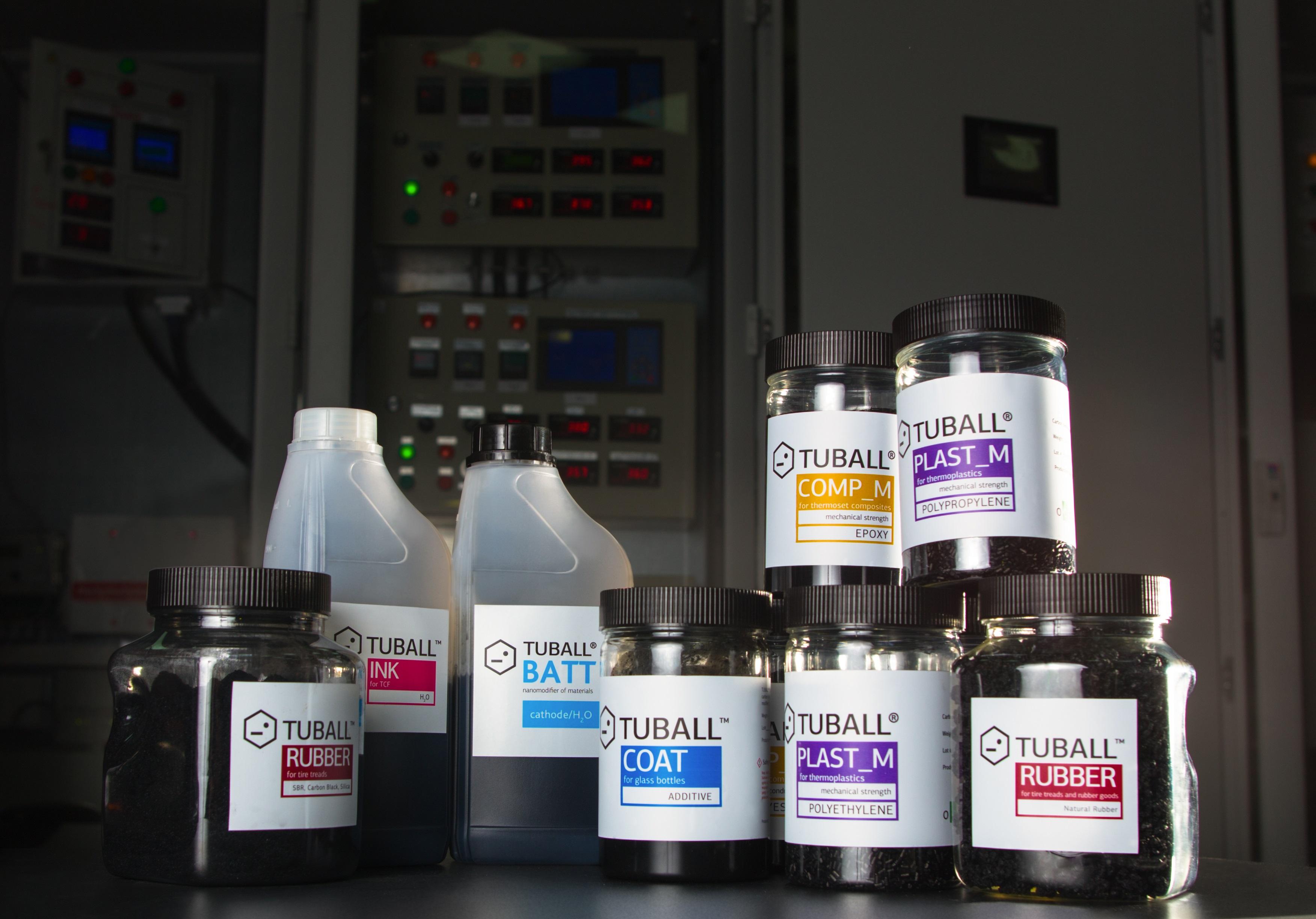
OCSiAl Builds Worldwide Partnership Network
Luxembourg (November 14, 2014) — OCSiAl, developer of the revolutionary material TUBALL, is now focused on creating a worldwide partnership network.
Facing a growing worldwide demand for new materials and solutions on one side, and a great interest of industrial manufacturers in providing these solutions without major changes in their business models and production processes on the other, OCSiAl presented TUBALL as an answer to these demands six months ago and now launches a partnership program.
TUBALL, first introduced in London this past spring, has gained attention of major brands in several industries since then. Not only due to its high “as produced” purity (75%+ of SWCNTs), but also because of its market price, which is 50 times lower than of other products with similar properties. That has been achieved by OCSiAl's technology , which allows cost-efficient SWСNT synthesis in sufficient volumes and doesn't require any further enrichment procedures.
To demonstrate TUBALL’s capabilities and to increase the number of its applications, OCSiAl has developed and licensed production technology for several TUBALL-based industrial modifiers: for cathodes of Li-ion batteries (TUBALL BATT), rubbers and tires (TUBALL RUBBER), thermoplastics (TUBALL PLAST), thermoset composites (TUBALL COMP) and for transparent conductive films (TUBALL INK). Modifiers for aluminium, concrete, paints and some other materials are under development.
The partnership program is compatible with various business models and works perfectly for different types of companies, including:
-
product manufacturers, who can produce TUBALL-enhanced
versions of their current products;
-
solution providers, who can start their own production
of TUBALL-based industrial modifiers (masterbatches and suspensions) using
OCSiAl's licensed technology for their own business, or to satisfy the demands
of their clients;
-
large-scale distributors, who can introduce TUBALL and
TUBALL-based modifiers to their local markets.
“We have great expectations for further prosperity of our business in cooperation with OCSiAl”, – says Managing Director of Evermore company Wu Lu-Hao. “We hope not only to attract new clients via highly sought TUBALL product, but to advance existing partnerships through offering new opportunities for development of our client’s products”
TUBALL's introduction to the nanomaterials market served as a pivot point for many industries, which previously experienced difficulties with the industrial usage of nanomodifiers, due to their high cost and absence of an efficient synthesis technology, and the lack of any alternative solutions.
Now further development of a worldwide partnership network will remove the last geographical, technological and economical borders, empowering new wave of revolution in materials manufacture.
“Analytical studies suggest that the nanomaterials
market will experience rapid growth in the next five to ten years, — says Yuri
Koropachinskiy, OCSiAl’s President and co-founder — If you want to be there in
2025 — now is the time to start.”
About OCSiAl
OCSiAl is an international technology company with operations worldwide. Named after the four major elements Oxygen (O), Carbon (C), Silicon, (Si), and Aluminum (Al), the OCSiAl offices are located in the US, Europe (UK, Luxembourg, Germany, Russia), and Asia (South Korea). OCSiAl’s team is 160 people of 22 talented scientists, 17 experienced managers and 122 devoted employees. In 2014 OCSiAl developed a breakthrough technology for the industrial production of single-walled carbon nanotubes (SWCNT) and entered the nanomaterials market with universal additive TUBALL.
About TUBALL
Company’s core
product is TUBALL – a unique material that contains 75% and more of single wall
carbon nanotubes (SWCNTs) and can be used as a universal additive for a wide
range of materials and carriers. TUBALL delivers improvements in the properties
of materials’ when added in quantities starting from as small as 0.001%-0.1% of
weight.
